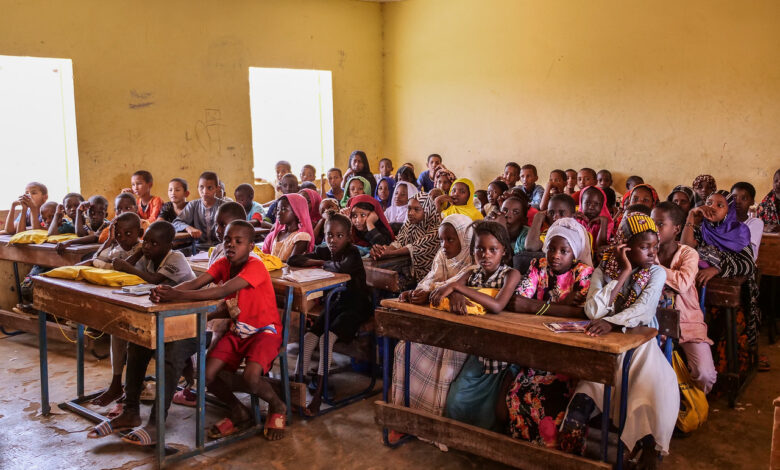Insecurity Keeping More Than Half A Million Children Out Of School In Mali
Norwegian Refugee Council stated that 1 in 10 schools, mostly in conflict zones in Mali, have remained closed due to a lack of infrastructure and school equipment since 2021

Continuous attacks on schools and defects in humanitarian funding for education is keeping 519,000 children out of school across Mali, the Norwegian Refugee Council(NRC) has said.
The security situation has created a humanitarian crisis in which the level of children dropping out of school has increased by 15 per cent since 2021, NRC stated.
Since 2012, the country has been facing a series of security setbacks, including military coups, renewed fighting between government forces and Tuareg rebels, and radical extremists’ seizure of much of the territory in the North and Central regions.
Maclean Natugasha, Country Director of the NRC in Mali, said children are more vulnerable to early marriage, economic exploitation and recruitment by armed groups outside the classroom.
“We must keep the doors of the schools open to close those of the paths of poverty and violence,” Natugasha said on Thursday, June 16.
According to the Global Coalition to Protect Education from Attack (GCPEA), attacks and threats by armed groups are the main factors behind the closure of 1,700 schools in Mali.
Over the past two years, over 60 attacks on education took place in 2019 alone, with over 1,100 schools closed, making the country among the three African countries whose schools are most attacked, along with Nigeria and the Democratic Republic of Congo (DRC).
Despite soaring needs, funding and support for the education sector trail behind in the humanitarian response, NRC stated.
The council said one in ten schools, mostly in conflict zones in Mali, have remained closed due to a lack of infrastructure and school equipment since the beginning of the year.
“Mali’s national budget cannot cover the needs, and education is one of the least funded sectors in the humanitarian response, accounting for only 2 per cent of funds received in 2022,” NRC said.
Ibrahim Ag Bijangoum, Acting Director of the Ménaka Education Academy, added that schools in conflict areas struggle to stay open.
“In some schools in the region, a single classroom can often accommodate up to 300 children due to a lack of infrastructure. How do you expect them to have a taste for learning in such conditions?” Bijangoum said.
“The solution to the problems of financing education in Mali lies in the hands of donors and the authorities. Without their mobilisation and coordination, the slates of half a million Malian children will remain blank.”
Since 2018, the Central Sahel has seen an alarming increase in attacks against students, teachers and schools. For example, in Mali, Non-state armed groups have targeted state education across the Central Sahel, commonly by burning and looting schools, threatening, abducting, and killing teachers.
According to a report released by the GCPEA, female students and educators are affected explicitly by attacks.
Pregnancy from rape, the health consequences and stigma of sexual violence, the risk of early marriage, and the privileging of boys’ education over girls make it difficult for girls to return to school.
Support Our Journalism
There are millions of ordinary people affected by conflict in Africa whose stories are missing in the mainstream media. HumAngle is determined to tell those challenging and under-reported stories, hoping that the people impacted by these conflicts will find the safety and security they deserve.
To ensure that we continue to provide public service coverage, we have a small favour to ask you. We want you to be part of our journalistic endeavour by contributing a token to us.
Your donation will further promote a robust, free, and independent media.
Donate HereStay Closer To The Stories That Matter




